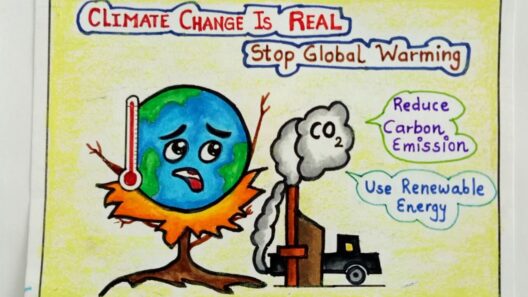The discourse surrounding global warming, often branded as climate change, has engendered a plethora of perspectives that range from vehement advocacy for urgent action to outright denial of its existential threat. Within this contentious dialogue, there exists a faction that can be termed revisionists—individuals who question the prevailing scientific consensus and propose alternative narratives. Their arguments complicate a conversation that is already fraught with political, social, and economic implications. This article seeks to elucidate the revisionist perspective, juxtaposed with established scientific understanding, in order to foster a more nuanced comprehension of global warming.
At the heart of the revisionist argument lies skepticism about the data that underpins climate science. They contend that climate models are overly reliant on historical climate data, which they argue is variable and may not accurately predict future trends. Revisionists often cite instances where climate predictions have failed to materialize as evidence against the reliability of these models. Critics, however, counter that the overwhelming majority of climate scientists agree on the foundational principles of climate change. Indeed, it is a mischaracterization to equate disagreement on specifics with the rejection of the consensus on the human influence on climate systems.
Another component of their objections is often rooted in a belief in natural climate variability. Revisionists claim that climatic shifts can be ascribed to non-anthropogenic factors such as solar cycles, volcanic activity, and natural oceanic fluctuations. While it is indisputable that natural phenomena can and do influence climate, the consensus among climatologists is clear: the current pace and scale of global warming are unprecedented in human history and correlate directly with the rise in greenhouse gas emissions from human activities.
One salient point that often emerges in the revisionist dialogue is economic concern. Many revisionists assert that policies aimed at mitigating climate change—such as regulatory restrictions on carbon emissions or substantial investments in renewable energy—could stifle economic growth and infringe upon individual liberties. The critique extends to claims that climate change activism is a guise for broader political agendas, encompassing calls for social equity and wealth redistribution. However, proponents of climate action argue that the long-term costs of inaction—both in economic and human terms—far outweigh the immediate costs of implementing mitigation strategies.
The revisionist narrative often hinges on the argument of misinformation and manipulation of data by climate scientists and activists alike. They allege that exaggerated claims, such as the portrayal of extreme weather events as unequivocal proof of climate change, serve to instigate public fear and justify policy changes. Conversely, it is documented that extreme weather events, including hurricanes and droughts, are indeed becoming more frequent and severe due to rising global temperatures, primarily attributable to human-induced climate change.
Additionally, revisionists frequently idealize a notion of an unencumbered free market unfettered by environmental regulations as the best approach to address environmental concerns. This perspective, while laudable in promoting economic liberty, often underestimates the intricate relationship between environmental sustainability and economic resilience. Ignoring environmental degradation may yield short-term economic benefits but poses significant risks to future generations, who will bear the brunt of our current decisions.
In dislodging myths surrounding climate change, it is essential to recognize the breadth of evidence presented by the scientific community. Extensive peer-reviewed studies indicate that the Earth’s average temperature has risen significantly over the past century, with the last decade being the hottest on record. Ice sheets in Antarctica and Greenland are melting at alarming rates, contributing to rising sea levels that threaten coastal communities worldwide. The acidification of oceans due to increased carbon dioxide levels is disrupting marine ecosystems and fisheries, imperiling food security for millions.
Upon closer examination, the revisionist standpoint often appears to be an amalgamation of selective interpretations of data, misunderstandings of scientific principles, and a resistance to acknowledge the human capacity for affecting the climate system. In contrast, the scientific consensus is steadfast: anthropogenic factors are driving the current trajectory of global warming. This consensus is backed by numerous authoritative bodies, including the Intergovernmental Panel on Climate Change (IPCC) and the National Aeronautics and Space Administration (NASA).
The urgency of addressing global warming cannot be overstated. With climate-related events increasingly becoming the norm, communities must grapple with the ramifications—economic loss, displacement, and adaptation costs—all of which could be alleviated through proactive measures. The collective response to this global crisis necessitates a balance between development and sustainability, as well as a vigorous commitment to renewable energy sources, carbon capture technologies, and enhanced public transportation systems.
In conclusion, while the revisionist perspective presents a particular narrative that seeks to undermine the consensus on global warming, the reality remains starkly different. The convergence of scientific evidence supports a clear understanding of climate change as a pressing issue that calls for immediate and coordinated efforts across the globe. Ultimately, fostering an informed and rational discourse that accommodates multifaceted viewpoints is crucial, yet the foundational truths of climate science must prevail in any deliberation on the future of our planet.






